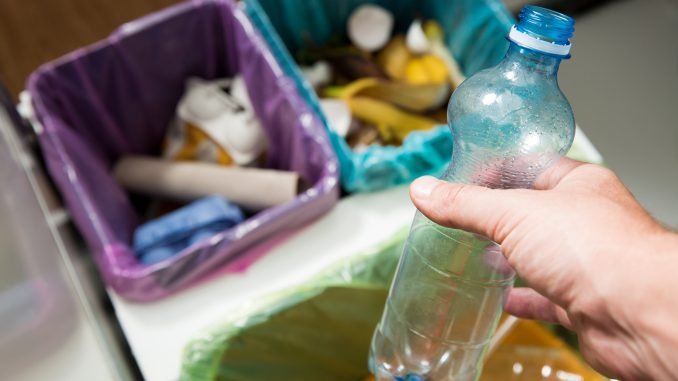
A well-known Italian chef and television presenter, Gian Luca Demarco, is environmentally friendly every day. He has three children himself. Therefore, he is convinced that the world needs to be left a better and a more beautiful place to live than we have found it. “I care about being eco-friendly. It is only a shame that I may not always do as much as I would love to. I recycle both at home and at work. But it is not so easy. The state does not fully support recycling as often the products that we purchase come in plastic packaging,” he says. According to Mr Gian Luca, it would help if buyers could choose between different types of packaging. If more products were in paper packaging as opposed to plastic, the packaging could be reused. But to change something, one should start with himself, Žalias Taškas said in a press release .
Pupils also help create sustainable environment
Individual responsibility for protecting the environment which we live in is demonstrated, with a very high level of willingness, by pupils. The younger generation is well aware of what is often forgotten by the adults who, at times, lead by bad example. The relevance of the environmental issues to young people is revealed in the statistics of the eco project, which has been held for a number of years now and is aimed at senior pupils.
The educational competition, which aims to have the Lithuanian pupils’ eco-awareness developed in an unconventional way through particular focus on correct waste management, rational use of resources and improvement of environmental quality, has already been attended by over 60 thousand pupils from across the country.
“The interest and proactiveness shown by the schools is indeed pleasing. Taking part in the National Green Olympiad, pupils form habits which lead to cleaner nature. To illustrate, last year alone, pupils from 250 of the country’s schools recycled 54 thousand kilograms of waste in just a month’s time,” says Vaida Griškevičienė, an expert in ecology and the Director of the “Kita forma” (Another Form) initiative promoting environmental education.
Knowledge to be developed in an unconventional way
The environmental initiative “Kita forma” and the largest licensed packaging waste management organisation Žaliasis taškas invites pupils to plunge into a new eco challenge once again! The participants of the project, which is about to become a traditional event, would be able tell (even if awaken in the middle of the night) about the Icelandic student who created a biodegradable edible water bottle that starts to disintegrate as soon as it is emptied and tell, without much effort, what country had the enzyme destroying plastic waste created. Once taken part in the Olympiad, pupils understand that leaving a light on or having an additional sheet of paper will require natural resources and that coffee can be drunk not only from disposable cups.
The Green Olympiad, rich in theoretical knowledge and practical experiences, is held in three stages and spans nearly the entire school year, including the summer break which is filled with creative tasks.
The signed up schools are involved in the processes saving resources. In the first stage, the school community not only saves natural resources, but also actively recycles the waste generated at the educational institution. To reinforce the obtained knowledge, the most active teams meet face to face in the semi-finals held across various regions of the country. Finally, only a little over 10 of the strongest Lithuanian teams out of a few hundred schools compete in the final. As continuation of the process of getting familiar with environmental protection, winners are awarded a productive trip to a European country.
We still have room for improvement
Chef Gian Luca Demarko welcomes such initiatives and says that Lithuania still has room for improvement. People in the north of Italy, where he grew up, carefully recycle. “Naples often gets the backlash for its recycling operations, but the situation is much better over there. Lithuania is a small country and does not yet fully get to grips with the importance of recycling. You know, as long as the problems are with the neighbour, they are not ours,” he says. Mr Gian Luca tells us that every house has different recycling bins or boxes for individual types of waste. The Italians, like the Lithuanians, recycle glass, paper, plastic, metals and composite packaging. All types of rubbish are removed once or multiple times a week.
The recycling system has been introduced to Lithuania fairly recently if compared to West European countries. So there are no established deep-rooted traditions transferable from one generation to another as yet.
“We often see recycling as a trivial operation with no effect on global issues of climate change. But all global problems start with small matters somewhere in our own backyards, and the matters are determined by the day-to-day behaviour of each and every one of us.
Minor works for major changes – such a motto chosen for the Olympiad, which develops the pupils’ eco-awareness, is no coincidence. One individual recycling waste with care may save a hundred trees, and if followed by other members of the household, friends and neighbours, could see the entire wood saved from being cut down”, believes Simona Rasalė, the Communications and Marketing Manager at Žaliasis taškas and the organiser of the youth initiative.

Be the first to comment